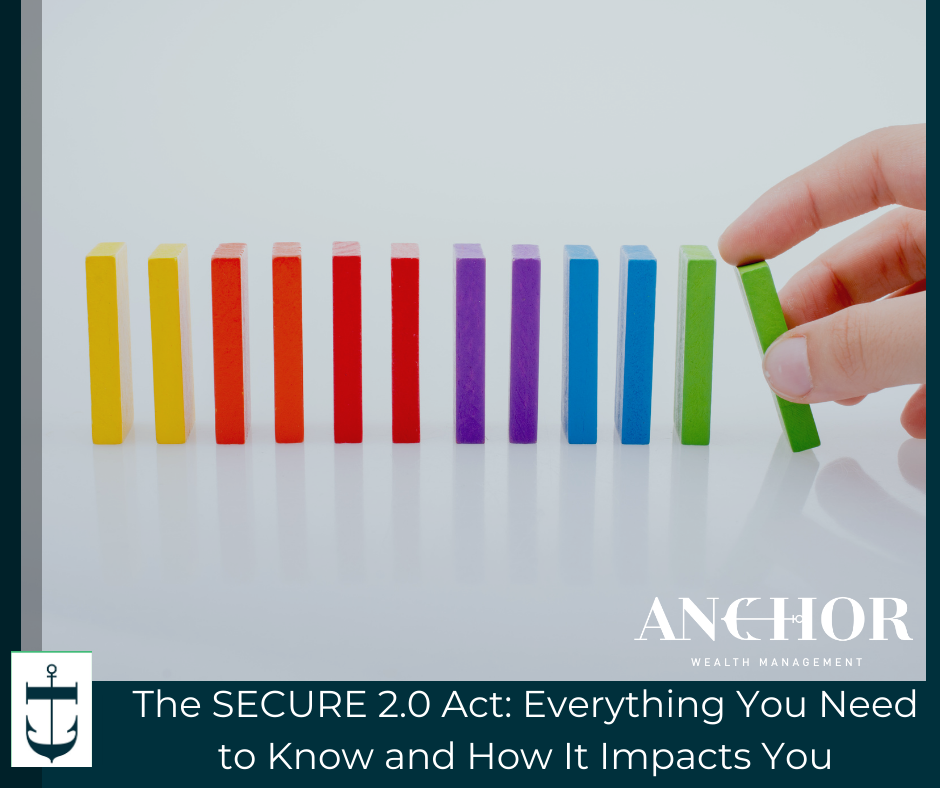
Did you know more than 4 out of 10 Americans aren’t saving for retirement, and more than half of Americans feel like they aren’t meeting their retirement goals? The world of retirement planning is ever-evolving, and staying informed about legislative changes is crucial to securing your financial future. The SECURE 2.0 Act is a significant update in this arena, building upon the original SECURE Act to further enhance retirement security for Americans.
The SECURE 2.0 Act aims to improve retirement readiness and security by introducing several key changes to retirement plans. However, it’s important to note that not every business will be able to implement these changes immediately. Some companies may lack the capabilities to meet the new requirements, while others are still figuring out what works best for them. As companies look to make those changes, here is what you can expect to change about your retirement options as an employee.
Major Highlights of the SECURE 2.0 Act
- Roth options are now available for SIMPLE IRAs and SEP IRAs.
- The required minimum distribution (RMD) age is now 73.
- You no longer have to take RMDs from Roth 401(k)s and Roth 403(b)s.
- You face smaller penalties for missed RMDs.
- You can roll over unused 529 plan funds to a Roth IRA.
- Employers can match your student loan payments with retirement contributions.
What to Expect by Year
Understanding these changes year by year can help you better plan for your financial future. Here’s a brief overview of what to expect each year as the Act’s provisions come into effect.
Looking back…In 2023:
- The RMD age increased from 72 to 73, giving retirees more time to let their savings grow tax-deferred.
- Penalties for failing to take RMDs were reduced, easing the financial burden for retirees who missed their distribution deadline.
- SEP IRAs and SIMPLE IRAs were added to the list of employment plans, broadening the scope of available retirement savings options.
In 2024:
- 529 Plan Rollovers: 529 Savings Plans, which need to be set up for at least 15 years, can be rolled over to a Roth IRA if there is a remaining balance. This change helps avoid cash penalties on the growth and withdrawal of unused funds.
In 2025:
- Companies are expected to automatically enroll employees in 401(k) plans, ensuring more workers are saving for retirement.
How Anchor Wealth Management Can Help
Navigating the intricacies of the SECURE 2.0 Act can be challenging, especially as businesses and individuals adjust to the new regulations. Professional guidance ensures that you stay informed about new developments and make strategic decisions to enhance your retirement security.
Stay proactive, stay informed, and let Anchor help you navigate the path to a secure retirement.
